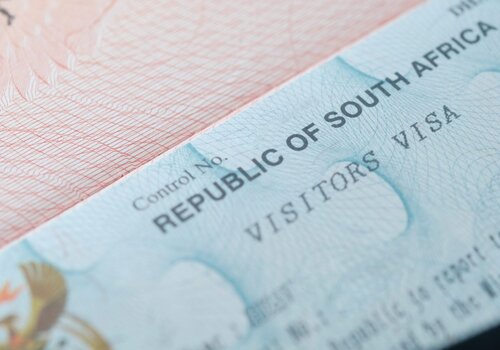Many students dream of studying abroad, and Canada offers a great educational experience. However, as a Nigerian student, you may wonder what the requirements are to study in Canada. Here we explain the process and provide an overview of the requirements to study in Canada for those who wish to pursue their studies abroad. From studying English language proficiency to visa applications, this article will provide a comprehensive guide on the steps required to make your Canadian dreams come true.
Previously in one of our articles, we looked at the expenses incurred by Nigerian students who wish to study in Canada. These figures vary depending on the location and type of school enrolled in but should give you an idea of what you could expect if you were to study in Canada from Nigeria. You can learn more from this article – Expected Cost of Studying in Canada from Nigeria.
So, as a Nigerian student, one of your priorities should be to figure out what requirements you need to meet to study in Canada. And we can assure you that the process and requirements for studying in Canada from Nigeria are simpler than you think!
Before we get into the study in Canada requirements, look at the application process!
Table of Contents
Application Process
The application process for studying in Canada is very straightforward and consists of the following steps:
- Choose your preferred university and program.
- Check the university’s website for application deadlines.
- Complete the online application form.
- Attach the essential documents to your application, such as college transcripts, letters of recommendation, SOP, and IELTS/TOEFL.
- Wait for your acceptance letter.
- Apply for your student visa (study permit).
These are the only hurdles standing between you and your dream university in Canada.
Requirements to Study in Canada for Nigerian Students
Each Canadian university has a unique set of requirements for Nigerian students. These data sets can be acquired from the relevant academic institution. However, a few basic requirements must be met all at once. The requirements to study in Canada are explained below.
English Language Proficiency
English is a major language of instruction in Canadian universities and colleges, so students must demonstrate their proficiency. Nigerian students can take the International English Language Testing System (IELTS) or Test of English as a Foreign Language (TOEFL) to demonstrate their proficiency.
A minimum score of 6.0 or equivalent on the IELTS test or a minimum score of 79 on the TOEFL is required for admission to most universities in Canada.
Educational Qualification
To study in Canada from Nigeria, you must have completed your secondary education and have obtained a minimum of five credits in your West African Senior School Certificate Examination (WASSCE) or National Examination Council (NECO) examination. The credits must include English Language, Mathematics, and three other subjects relevant to the course of study the student intends to pursue. In addition, academic transcripts or equivalent qualifications from your school will be required.
Don’t Miss: How to Transfer to a Canadian University from Nigeria
Statement of Purpose
A statement of purpose is a document that outlines the reason for your intended study in Canada, your goals, and your qualifications for the program you are applying for. This document is an important factor in the admissions process as it gives the admissions committee an understanding of who you are and why you want to study in Canada.
Here are some of the key elements that should be included in your statement of purpose:
Background: Start by giving a brief overview of your background, including your academic and professional experiences. Highlight any relevant experiences that make you a strong candidate for the program you are applying for.
Reasons for studying in Canada: Explain why you want to study in Canada and why you have chosen the specific program you are applying for. Mention any relevant experiences or events that have influenced your decision to study in Canada.
Career Goals: Finally, discuss your career goals and how the program you are applying for will help you achieve them. Explain how the education and skills you will gain in Canada will be beneficial for your future career.
Acceptance Letter from DLI
DLI is an abbreviation for Designated Learning Institute. The university has approved your application and is ready to admit you. A letter of acceptance is an important document you may get in the mail once your online application has been submitted.
Acceptance is determined by how well your application matches the candidate’s expectations. When applying for a Canadian student visa or permit, you will need to provide a letter of acceptance. You will receive a Letter of Acceptance around 1 to 2 months after submitting your applications.
We recommend applying 8 to 9 months before the start of the semester to enhance your chances of acceptance.
Proof of Funding
Nigerian students must provide proof of financial support for their study program in Canada. This could include a bank statement showing the student has enough funds to cover tuition fees, living expenses, and other costs. You may also have to provide a letter of financial support from your parent or sponsor.
You can demonstrate your financial stability by providing the following evidence:
- Bank statements for the previous four months.
- You must prove that you have already paid your tuition and housing expenses.
- You must provide a loan letter if you have a student loan from any bank.
- A Guaranteed Investment Certificate (GIC) is necessary if a Canadian financial institution funds your education.
- Documents proving your scholarships or funding.
Medical Examination
Before entering Canada, students must undergo a medical examination to ensure that they are in good health. The medical examination must be conducted by a designated medical practitioner (DMP) and must include a complete physical examination, a chest x-ray, and any other tests that may be required based on the student’s personal medical history.
Police Certificate
A police certificate is a document that states whether you have a criminal record in Nigeria. This certificate is required to prove that you are of good character and do not have any criminal history.
In order to obtain a police certificate, you must provide your fingerprints and complete a background check. The police certificate must be obtained from the Nigerian Police Force and be less than six months old.
Study Permit
Once all the above requirements have been met, you can apply for a study permit. This permit will allow you to study and live in Canada for the duration of your program. You must also provide a valid passport for at least six months beyond the end of your study program.
More importantly, we recommend you apply for your student permit at least 4-6 months before the start of your semester. This is because the application may take up to 35 working days to process.
To apply for a study permit, you must pay an application cost of CAD 150 or 52 000 Naira. After your application has been reviewed, you will be scheduled for a visa interview.
Depending on your level of study, you may need different requirements to study in Canada. Check out your basic requirements below!
Eligibility Requirements for Bachelor’s Degree in Canada
The following are the requirements for pursuing a bachelor’s degree in Canada:
- Transcripts from high school and a 70% in math in 12th grade
- Certificate in IELTS/TOEFL/French Evaluation Test (TEF)
- Online Application form
- Proof of funds
- Statement of purpose
Eligibility Requirements for Master’s Degree in Canada
The following are the requirements for a 1-2 year master’s degree in Canada:
In Canada, a graduation degree is equivalent to a bachelor’s degree.
- GMAT/GRE score
- TOEFL or IELTS score
- Recommendation Letter
- Statement of Purpose
- An updated resume
Eligibility Requirements for a Doctorate in Canada
Do you want to get a Ph.D. in your field and be called a doctor? Learn about the criteria for studying in Canada here:
- Postgraduate degree in your field of study
- Within your statement of goal, including a research proposal.
- Recommendation letter
- Minimum IELTS/TOEFL, GMAT, or GRE score, depending on your field
- An updated resume
Wrap Up!
In conclusion, if you want to study in Canada, follow the abovementioned requirements. By doing so, you will have a smooth and successful application process. Remember, proper planning and preparation are key to ensuring a smooth and successful study experience in Canada. Finally, do share this article with your friends who are also looking to study in Canada, and let them know what they need to do in order to have a successful application.









